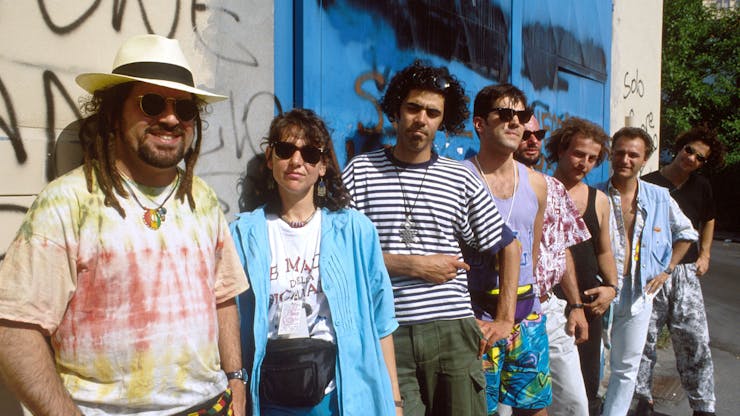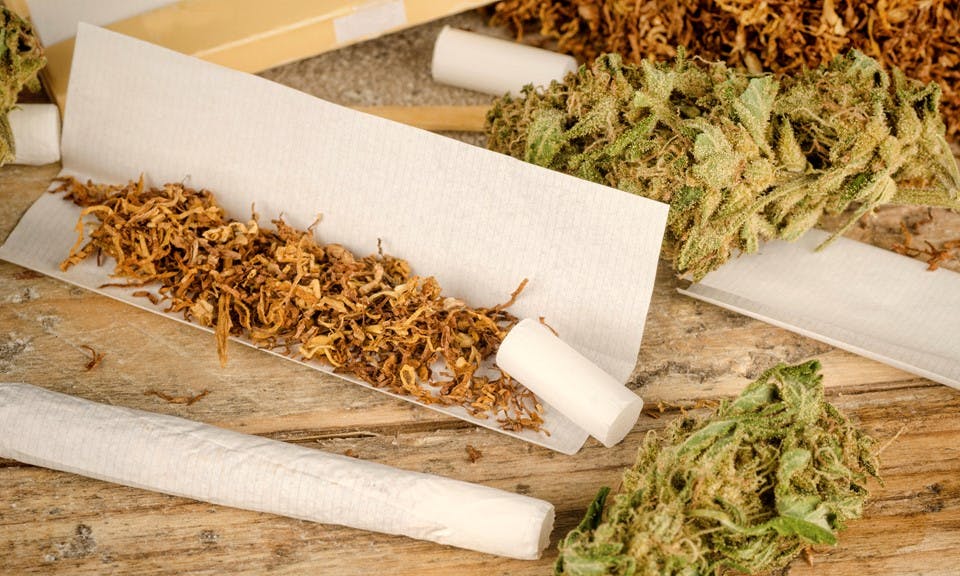It’s been more than a decade since Sir Oliver Skardy was a part of Italy’s most famous reggae band, Pitura Freska. He still plays solo gigs but, true to his working-class roots, also keeps his modest job as a school janitor. With the Italian parliament debating legalizing cannabis, Skardy might be rejoicing soon.
Millions of people visit Venice every year, but most stick to the beaten paths (or canals, as it were) and overlook interesting elements of local culture. A prime example is the Venetian cannabis and reggae scene, with Pitura Freska as its most prominent exponent.
In the Venetian dialect, Pitura Freska translates to “Wet Paint,” a reference to a Laurel and Hardy scene. The Venice-based band, led by Gaetano Scardicchio a.k.a. Sir Oliver Skardy, achieved fame around the 1990s with songs about sex and cannabis.
The song “Olanda” describes how although cannabis is tolerated in the Netherlands, consumers in Venice have to hide or risk a beating. Skardy proudly proclaims, “If I become the king of pop, I will buy myself a coffeeshop.”
Today’s residents of the Veneto region, now renowned for its wines, were once largely poor refugees. At the time their typical food was polenta, a simply white corn porridge served plain. It’s now considered a delicacy but was regarded as horrible in those days.
It’s a population that has known misery and oppression. Does that explain why reggae music is so popular in the area? Throughout the centuries, Venice has been a rebel city. It and Amsterdam are so similar, the Dutch city is sometimes called the Venice of the North. But although the Venetian locals love cannabis, authorities hate it. The Italian Rototom Reggae Sunsplash, one of Europe’s largest reggae festivals, had to move to Spain in 2010, after a cannabis law was passed.
The whole Venice region has rapidly industrialized and welcomed guests the world over, making popular Venetian words such as ciao and spritz part of the global lexicon. In this context, the local dialect has become a tool of emancipation and preservation of the local culture. Reggae was a natural fit for the mix of protest and sensuality, and in the eighties Skardy and his Pitura Freska burst onto the scene.
Fascinated by Bob Marley, Skardy built Pitura Freska to focus on three main features: cannabis, carnal love, and local Venetian dialects. His lyrics also touch on respect for the earth. As Skardy sings in the song “Marghera,” about his Venice’s industrial district, “Here in Marghera we make a very clear point: Without factories, Marghera would be much healthier — a jungle of corn cobs, tomatoes, and marijuana.”
Pitura Freska quickly became Italy’s most outspoken pro-cannabis group and dominated the national reggae scene until it disbanded in 2002. Since then, many other Italian musicians have followed in the band’s footsteps.
Another Skardy song, “The Boss,” is written as a declaration of love by famous Chicago gangster Al Capone to the politicians who perpetuated the war on cannabis just to fill their own pockets:
“Thank you, Honorable, it’s even too much with the business money I have topped up. Thank you, Honorable, risks and prices have been tripled. Our people are covered, the worse off are sent to prison. I got a 100-meter yacht, a hundred houses and big palaces, personal airplane. … Venice is old fashioned … whereas it could be the best smoking place. Let’s kiss the hands of the organization. Thank you, Honorable. Signed by: Al Capone.”
Shop highly rated dispensaries near you
Showing you dispensaries nearIt’s a song that feels relevant today as the Italian Parliament discusses legalizing cannabis — in part to wrest it from Mafia control. Raffaele Cantore, the head of the Italian Anti-Corruption Authority and a longtime prohibitionist, has recently changed his tune, proclaiming that “legalizing cannabis is the only intelligent solution” to organized crime.
“Until very recently I was absolutely opposed to the idea of legalization, because most of the arguments did not convince me that it would serve to defeat organized crime, because soft drugs are an insignificant part of the profits of organized crime,” Cantore said in a Radio Radicale interview last week. “Now I have changed my position a bit. I believe above all that intelligent legalization could avoid the worst harm for the kids, [that is] to come in contact with criminal elements.”







